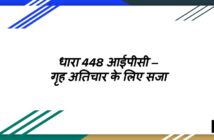The award of cost has been provided under Section 35, 35A, 35B, and Order XXA of the Code of Civil Procedure (CPC). The court orders award of costs for vexatious (legal actions instituted without sufficient grounds intending to cause annoyance to the defendant), frivolous (senseless), and speculative (hypothetical) litigation. In this article, we will discuss what is cost, the reason for imposing costs, the kinds of costs, the High Court’s power to impose a cost, the Supreme Court’s suggestions and the Law Commission Report on the award of cost.
What is Award of Cost?
‘Cost’ means an amount of money ordered by the court to be paid by one party to another as compensation concerning the amount spent on litigations. Except where the court has directed that the award of costs has to be made at the discretion of the court.
Section 35 of CPC states that the court has the power to prescribe a cost and incidents of suits to the losing party.
Such cost can be prescribed at the court’s discretion based on certain conditions and limitations. The court will decide who will bear the cost, the extent of cost to be paid, the property against which such cost will be borne, and other directions as may be necessary.
It also states that where the court says that the cost shall follow the event, there should be a reason for the same. In other words, the court has the discretion to award or not award the cost to the successful party. If the court does not award any cost, the court should state its reason.
In various cases, the court has put forward that the award of the court should be reasonable and realistic.
Reason for imposing the cost/ When can the costs be awarded?
The purpose of awarding cost is to indemnify the successful party, deter the party from filing false litigations, encourage settlement of dispute without delay, increase flexibility for discharging justice and facilitate access to justice.
The main aim for imposing a cost on the unsuccessful (losing) party has been put forward by the Supreme Court in Vinod Seth Vs. Devinder Bajaj. These are as follows:
a) To hinder any vexatious (disorderly), frivolous (senseless), and speculative (hypothetical) litigations or defences. The aim is to make the litigants think before instituting any false claims or defences by imposing the cost of the award.
b) To ensure that the provisions of the Evidence Act, CPC, and other laws governing the procedure should be strictly and meticulously complied with, and any delaying tactics should not be adopted by the parties.
c) To indemnify the litigant adequately for the cost incurred, which should be the actual cost.
d) To encourage the litigants to adopt the alternative dispute resolution (ADR) mechanism to resolve the dispute before the commencement of trial. In many jurisdictions, based on the applicable provision for costs, the litigants are encouraged to settle for 90% of the cost of civil suits before trial commences.
e) These provisions should not discourage the litigants from filing genuine bona fide claims or any litigants from weaker sections of the society whose rights have been affected.
How does the court impose the cost?
The Court may impose the cost keeping in mind the following circumstances:
Parties conduct;
- Have the party succeeded on its part;
- Have the party made any counterclaim that is frivolous, which causes a delay in disposing of the case;
- If the party has made any reasonable offer to settle that has been rejected by the other party;
- Have the party made any false claim and instituted frivolous litigation to waste the court’s time.
What are the different kinds of costs?
Now that we know what cost is and the reason for imposing the cost on the unsuccessful party. Let us now discuss the different kinds of costs.
There are four kinds of cost, namely;
1) General Cost
Section 35 of CPC states the court’s power to award cost to the successful party by the unsuccessful or losing party to compensate for the expenses made by the successful party for instituting a suit. If the court does not award any cost, the court should state why not award the cost. The cost granted should not punish the unsuccessful party or as a profit-making mechanism for the successful party.
2) Compensatory Cost
Compensatory cost is given under Section 35A of CPC. This provision has set out a maximum amount of Rs. 3000 as the compensatory cost to the person who has suffered due to false claims. This section aims at indemnifying the successful party by compensating for the expenses incurred. Such cost will be granted only if the court is satisfied that the case is frivolous and vexatious. Section 35A can be invoked in any suit; however, it is not applicable in an appeal or revision.
3) Cost for causing delay
Section 35B of CPC states the cost for causing the delay. This section aims to deter the parties who employ delaying tactics to delay the resolution of the matter. The court can award costs against the parties who unnecessarily delay the court proceedings.
4) Miscellaneous Cost
Order XXA of the CPC deals with the miscellaneous cost such as typing and printing charges, serving notice charges, production of witness charges, filing of counter-affidavit charges, etc.
What is the difference between the costs in a civil suit under CPC and Writ proceedings/ Public Interest Litigations (PIL)?
The maximum cost limit under CPC is Rs. 3000 as a compensatory cost for any frivolous and vexatious litigations. In a writ petition or PIL, the court can order exemplary costs based on the court’s discretion. The amount can range from Rs.50,000 to 1 Lakh.
In a civil suit, the cost award is subject to limitations based on the respective state’s High Court Rules. Whereas, in a writ petition or PIL, there is no limitation on the High Court to award cost.
High Courts power to impose cost
The Calcutta High Courts have made amendments to broaden the costs awarded to the successful party under Section 35A, including actual reasonable costs for the value of time spent for getting justice or opposing frivolous litigations. These costs would also include the advocates’ fees, court fees, and reasonable expenses paid during transportation and lodging of parties and witnesses.
The Karnataka High Court has amended Order XXA, stating that the cost should include loss of income incurred during the days of the hearing, lodging charges, and conveyance charges.
Supreme Court’s suggestions on the award of cost
- In various cases, the Supreme Court has pointed out that the courts should award the actual reasonable cost as per the rules prescribed by the law and make amendments to the rules regulations to determine the actual realistic costs in the light of the schedule.
- The Supreme Court has also stated that the actual realistic costs should relate to practical, realistic, and normal and not any whimsical or fancy expenditures made by the parties who have the privilege of engaging an expensive lawyer.
- The fixed court fees and advocate’s fees should be revised periodically.
- The Supreme Court can award any amount of high cost that is beyond what is provided by Section 35A of CPC. This award can be made at the discretion of the Supreme Court to do complete justice to the successful party in frivolous litigations.
240th Law Commission Report
The Law Commission considered the award of costs in civil litigation and put forward its suggestion before the Supreme Court. It had highlighted the three statutory principles that need to be reiterated, namely;
a) costs should follow the event;
b) realistic cost should be awarded keeping in view the ever-increasing litigation cost;
c) the purpose of awarding cost should have the effect of curbing vexatious and frivolous litigations.
The 240th Law Commission Report has submitted its recommendations based on Supreme Courts judgments.
A) These recommendations are:
1. The cost of civil suits should be realistic and reasonable to curb false and vexatious litigations and discourage adjournment of proceedings on petty grounds. These rules should be timely revised by the High Courts.
2. The rule of “cost should follow the event” should be implemented seriously and rarely deviated. The court should also ensure that the award should not cause undue suffering to the socio-economically backward party.
3. The rules made by the High Courts relating to the cost, specifically the advocate’s fees, should be revised to be on par with the principle of realistic and adequate cost.
4. The cost of adjournment should be high, and the court should frame a uniform rule for trial judges in granting costs for adjournment.
B) Amendments suggested:
Amendment to Section 35A:
a) Limitation of cost prescribed in 1976 be increased from Rs. 3000 to Rs. 1,00,000.
b) The cost awarded (maximum being Rs. 1,00,000) under Section 35A should be distributed between the party who have been victimized in frivolous or vexatious litigations and the Judicial Infrastructure Fund created by each High Court.
c) The word ‘compensatory’ should be replaced with ‘exemplary’ wherever the word appears under Section 35A. The court should award exemplary costs to the party even if the party has not applied for it. Such cost can be awarded after allowing both parties to hear. The court is satisfied that the claim or defence is vexatious or false.
Amendment to Order XX, Rule 6A (preparation of decree):
The period given should be extended from 15 days to 30 days. The parties can claim all allowable costs, and the Cost Taxation Officer can satisfactorily verify all the costs.
Conclusion
The court orders the unsuccessful party to award the cost to the successful party. The cost is awarded to deter the party from filing frivolous litigations, applying delaying tactics, and compensating for the expenses incurred in vexatious or false litigations. The Supreme Court and the 240th Law Commission Report have recommended amending CPC’s provisions to revise costs. According to the Law Commission Report, the CPC provisions are very outdated and should be modified to meet current situations.

